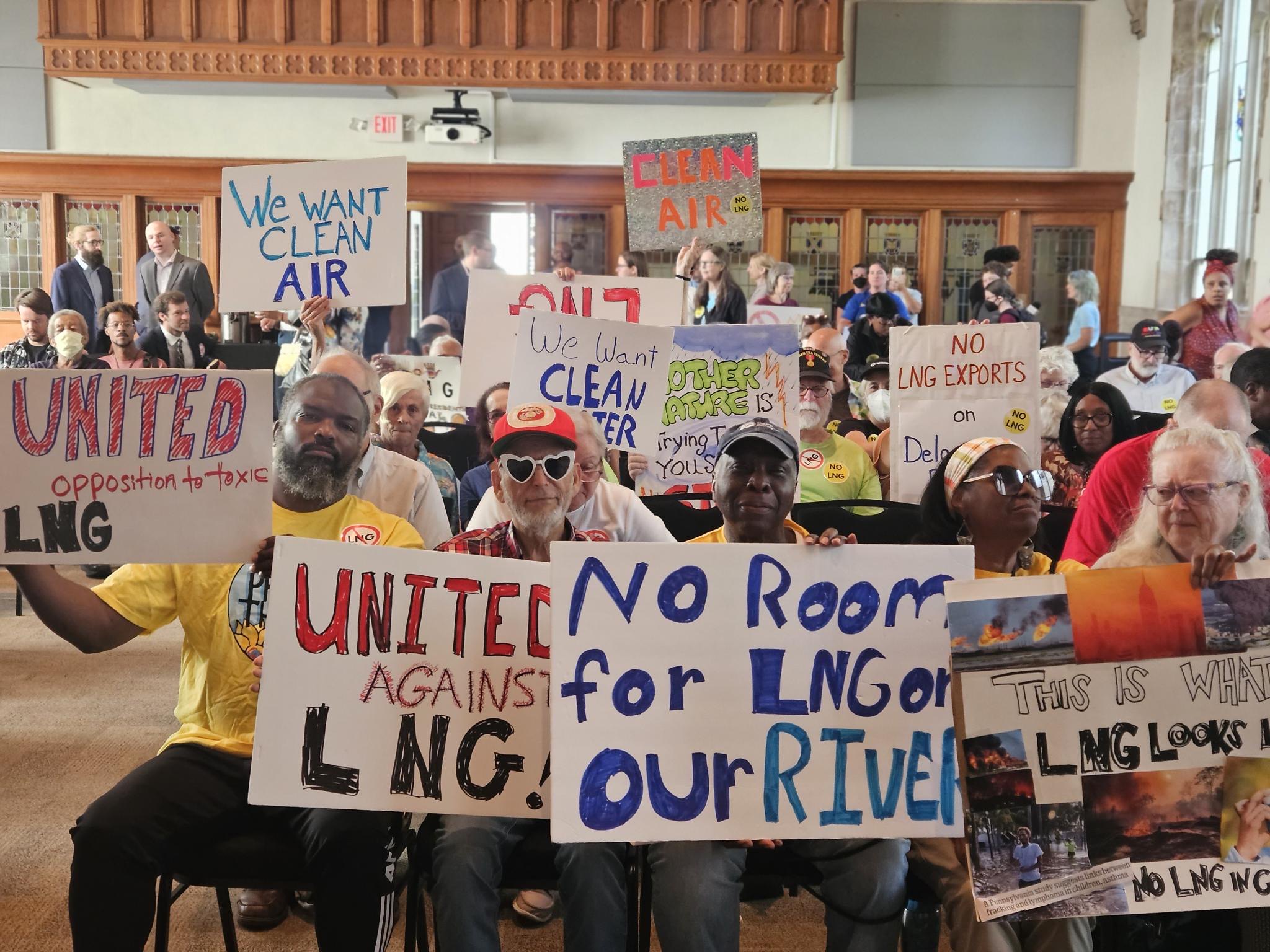DOE Releases New Report Finding Liquefied Natural Gas Exports are Harmful to Health, the Environment, and the Economy

WASHINGTON D.C. (December 17, 2024) – Today, the U.S. Department of Energy (DOE) released its public interest determination analysis, which will provide a framework for evaluating new and pending permits for exporting liquified natural gas (LNG) to countries without a free trade agreement with the United States. This announcement comes nearly a year after President Biden paused permitting decisions for LNG export facilities, which chill fracked gas for storage and transportation to other countries overseas.
The analysis found that continued LNG exports are unsustainable and unadvisable. Notably, the new analysis paints a clear picture of the environmental justice, climate, and economic harms of widespread LNG exports. LNG export terminals are concentrated in communities already burdened by highly-polluting industries, and the buildout of new LNG export facilities will only exacerbate these impacts. LNG exports will also worsen climate change through increasing greenhouse gas emissions from upstream gas production and likely offsetting the development of clean, renewable energy worldwide. Furthermore, unchecked growth of LNG exports will drive up energy costs for residential and commercial consumers while generating profits for the fossil fuel industry. The analysis found flattening international demand for LNG, with most new demand expected to be from China.
Alex Bomstein, Executive Director of Clean Air Council, issued the following statement:
“This report should end the discussion: LNG exports are bad for our pocketbooks, bad for the air we breathe, and bad for the safety of our communities. Energy independence does not mean shipping America’s resources overseas, it means harnessing and storing our abundant solar and wind energy. Clean Air Council urges the DOE to apply the study’s findings and deny the six pending permits for LNG export facilities.”
The findings from this analysis will inform future LNG export authorization decisions by the DOE and hold proposed projects to the strongest-to-date commonsense standards for determining the public impacts of LNG exports. Moreover, the study provides an important factual basis for arguments to deny permits for unlawful LNG export terminal proposals. The new analysis will replace the economic and environmental analyses used by the DOE for application decisions, which were published in 2018 and 2019, respectively.

